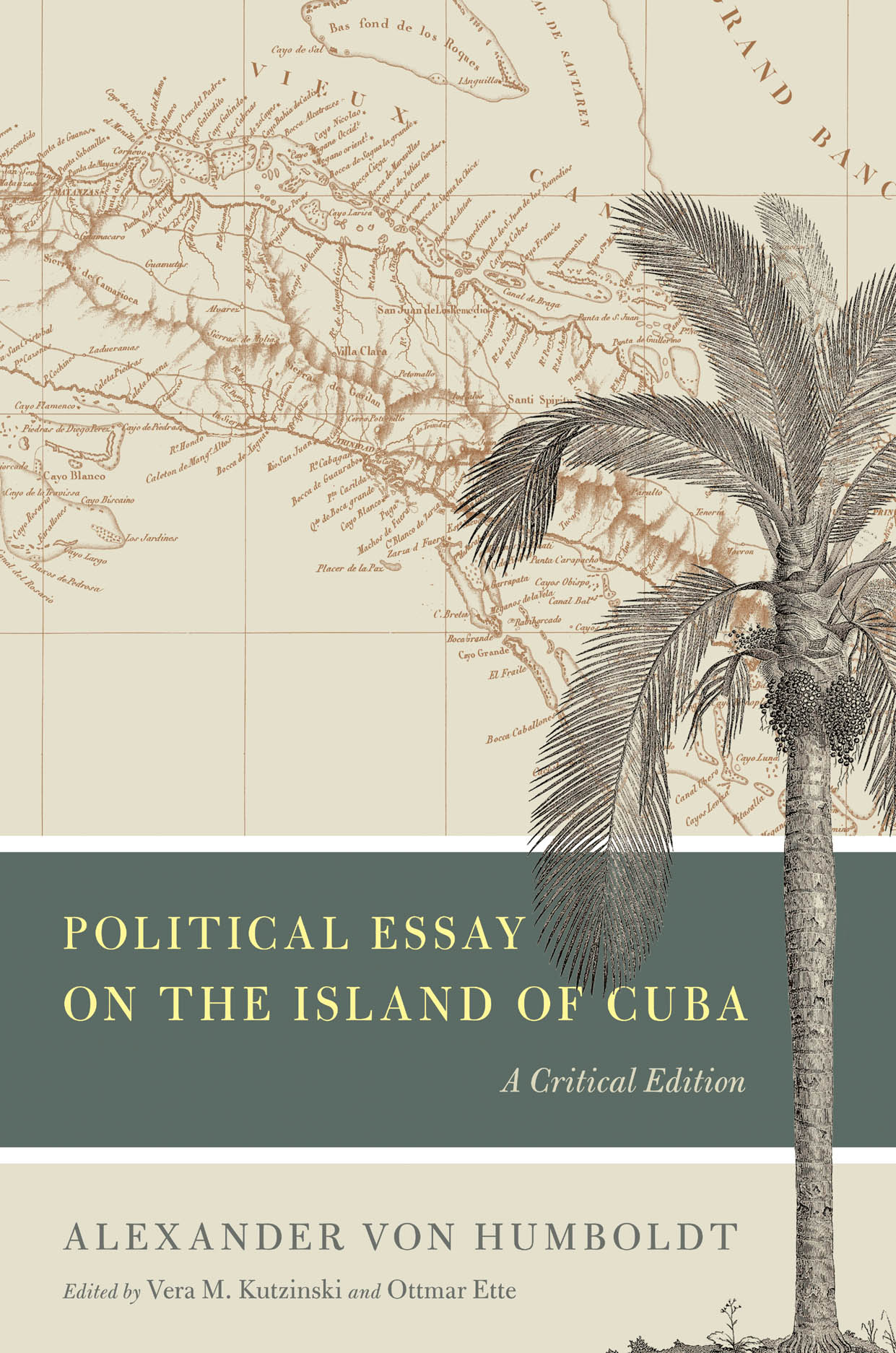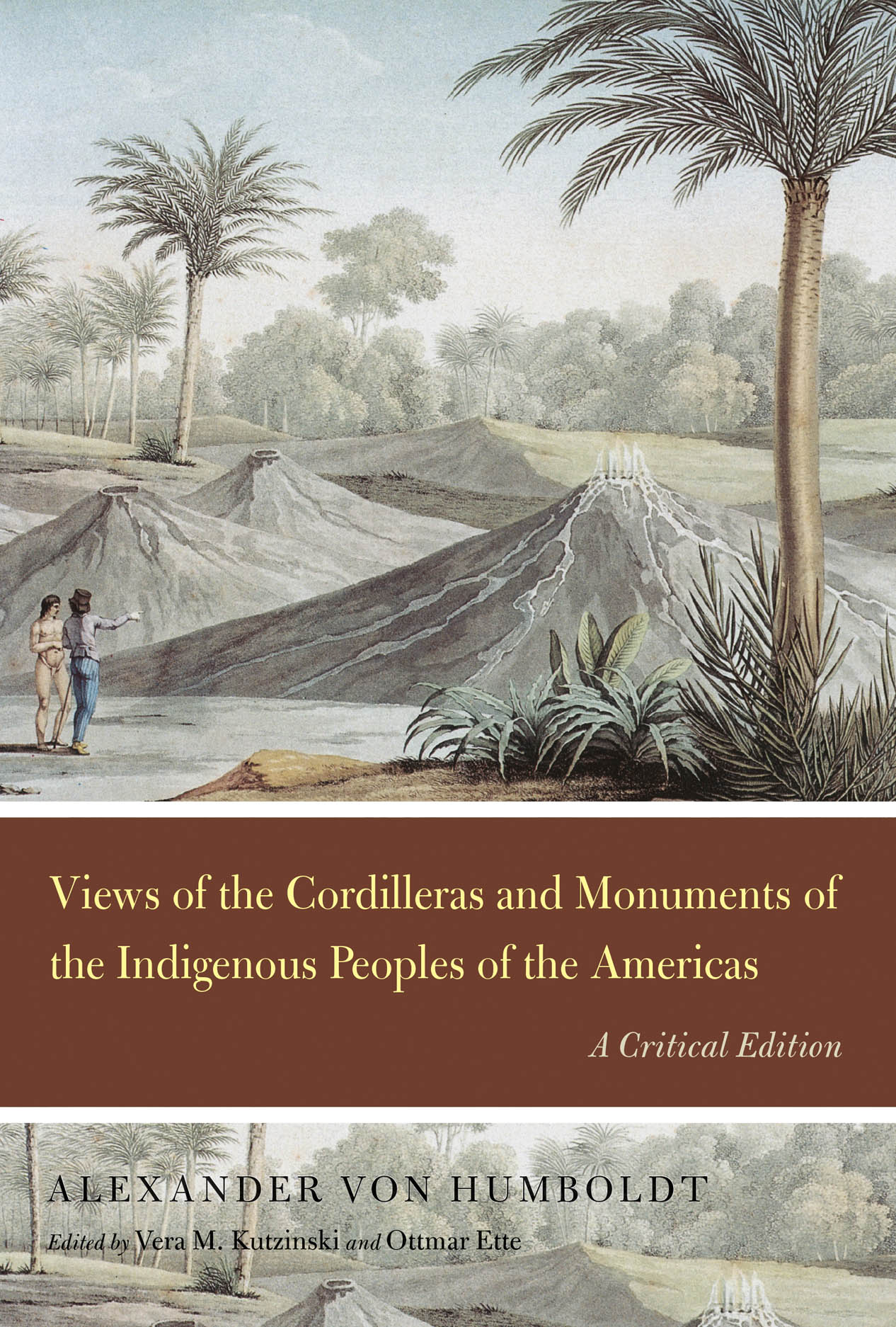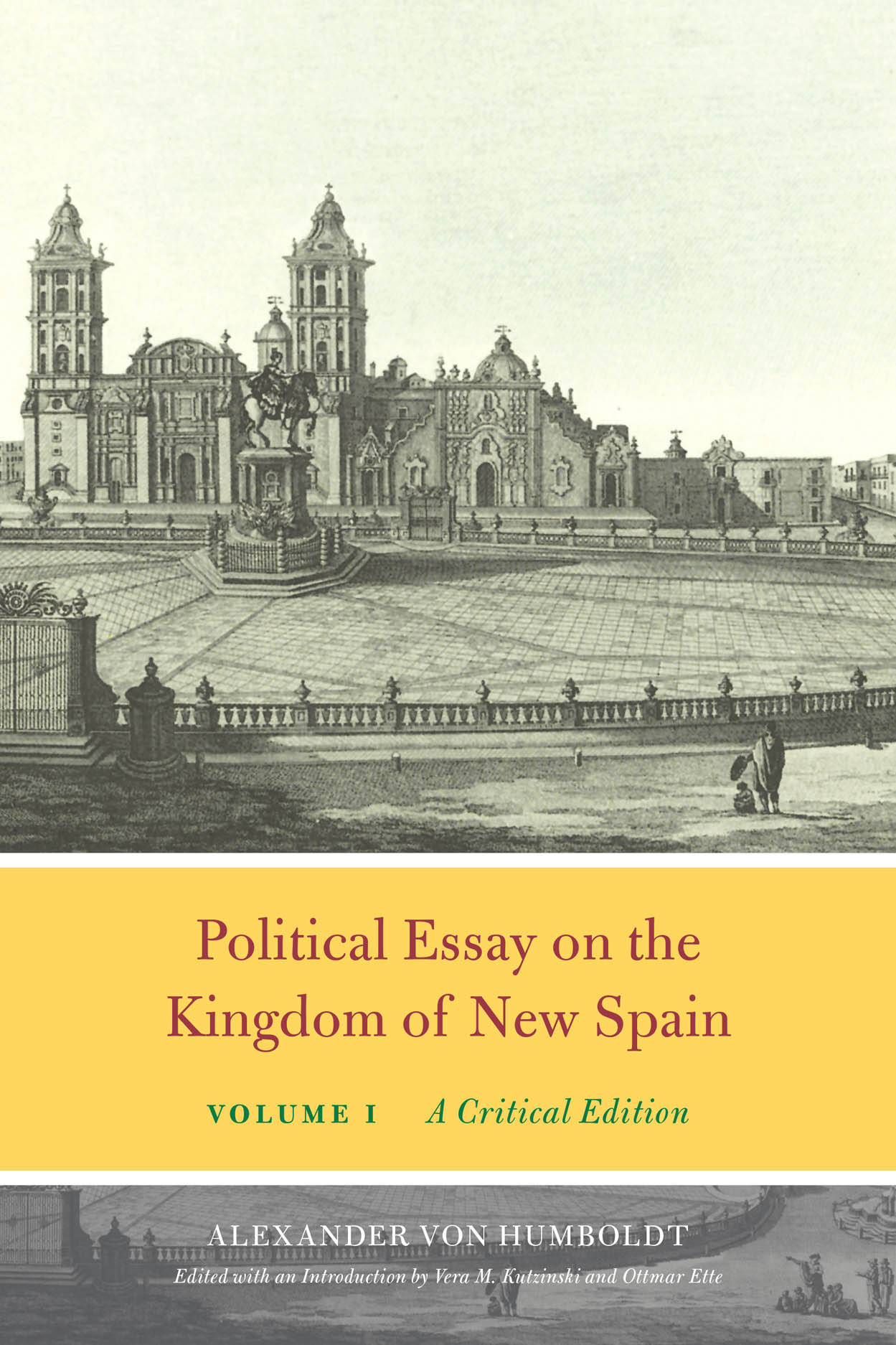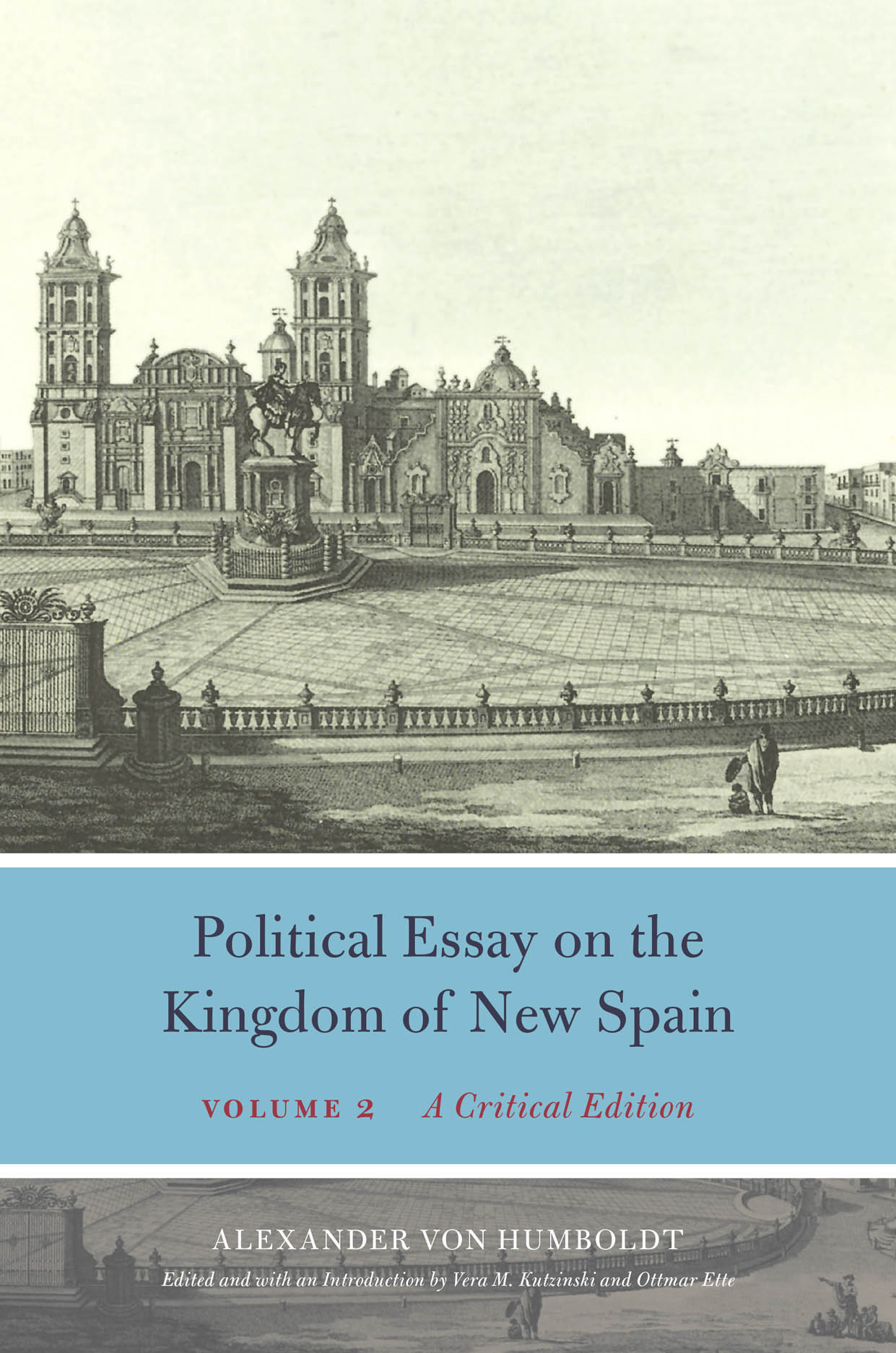Brief Timeline: The Political Essay in Cuba
• 1827: the public ban
The first Spanish translation of Humboldt’s Essai politique sur l'île de Cuba, published as Ensayo político sobre la Isla de Cuba (Paris: J. Renouard, 1827) was banned immediately after its arrival in Havana. Cuba’s economic and political elites, all quite familiar with Humboldt, were not yet ready to accept his critical pronouncements on their slaveholder’s society. Havana’s historical archive tells the story of this censorship. Supported by local politician Andrés de Zayas on November 29, 1827, the argument for a ban was based on the presumably dangerous nature of Humboldt’s ideas about slavery. More importantly, Humboldt demonstrated the true power that people of color had on the island.
• 1897: Vidal Morales y Morales’s contribution
An article in three parts in the leading cultural journal El Figaro (1885-1929) by the Cuban historian and archivist Vidal Morales y Morales (1848-1904), is an early landmark in the history of the Cuban reception of Humboldt’s writings. Morales’s “El Barón de Humboldt en la Isla de Cuba: 1800-1801-1804” was published in Numbers 21, 23, and 24 of El Figaro from June 1897; the original is located at the Biblioteca Nacional José Martí (Havana, Cuba). This article defines the end of decades during which Humboldt’s text had been silenced in Cuba and the beginning of a time when Humboldt’s life and works received broad approbations. This more positive reception of Humboldt in Cuba was continued by Fernando Ortiz’s Spanish edition of the Political Essay.
• 1930: Fernando Ortiz’s edition
The first Cuban edition of the Political Essay was prepared by the Cuban anthropologist Fernando Ortiz (1881-1969). Part of Ortiz’s prestigious Libros Cubanos series, Ensayo político sobre la isla de Cuba (Havana, 1930) includes an introductory essay and an afterword entitled “El traductor de Humboldt en la historia de Cuba” [Humboldt’s translator in the context of Cuban history]. The afterword prefaces the only Spanish translation of Thrasher’s 1856 “Preliminary Essay.”
Ortiz’s edition also includes Thrasher’s additions along with the annotations of the two-volume 1826 text by Francisco de Arango y Parreño, both in the form of footnotes. In an original copy of Thrasher’s The Island of Cuba, which belonged to Humboldt, Ortiz wrote a note to his secretary Pablo de la Torriente Brau (1901-36) instructing him to add the name “Thrasher” to each footnote in the Spanish manuscript not marked with an “H” as one of Humboldt’s own. Humboldt’s copy of Thrasher’s English translation also included on its last page some brief notes by Humboldt himself. Ortiz purchased this copy from an antiquarian dealer in Leipzig; it is now preserved in the Fernando Ortiz Collection at the Biblioteca Nacional José Martí (Havana, Cuba).
The Libro Cubanos series edition was reprinted in Havana in 1959, 1960, 1969, and 1998. Later Spanish editions of the Ensayo político sobre la isla de Cuba have tended to retain Arango’s comments as if they had been part of Humboldt’s own text.
Further Readings
Morales y Morales, Vidal. “El Barón de Humboldt en la Isla de Cuba: 1800-1801-1804” El Figaro 21, 23-24 (June 1897): 258; 286; 300 (original at the Biblioteca Nacional José Martí, Havana, Cuba). { upload PDF: 13-FIGARO1897}
Font, Mauricio A., and Alfonso W. Quiroz, ed. Cuban Counterpoints: The Legacy of Fernando Ortiz. Lanham, Md: Lexington Books, 2004.
Branche, Jerome. Colonialism and Race in Luso-Hispanic Literature. Columbia: Missouri, 2006.
Barnet, Miguel, and Alberto Quesada. “Alejandro de Humboldt (1769-1859) y don Fernando Ortiz (1881-1969): dos sabios descubridores de Cuba.” In Alejandro de Humboldt en Cuba: Catálogo para la exposición en la Casa Humboldt, Habana Vieja, Octubre 1997 – enero 1998, ed. Frank Holl, 75–82. Augsburg: Wissner, 1997.
Humboldt, Alexander von. “Estudio introductorio.” In Ensayo político sobre la Isla de Cuba, ed. Miguel Ángel Puig-Samper, Consuelo Naranjo Orovio, and Armando García González, 19–98. Madrid: Ed. Doce Calles. 1998.
Matos Arévalos, José Antonio. La historia en Fernando Ortiz. La Habana: Fundación Fernando Ortiz, 1999.
Kutzinski, Vera M. “Translations of Cuba: Fernando Ortiz, Alexander von Humboldt, and the curious case of John Sidney Thrasher.” Atlantic Studies Literary, Cultural and Historical Perspectives 6.3 (2009): 303-26.
Kutzinski, Vera M. “Humboldt’s translator in the context of Cuban history.” Atlantic Studies Literary, Cultural and Historical Perspectives 6.3 (2009): 327-43.
Kutzinski, Vera M. “Alexander von Humboldt’'s transatlantic personae.” Atlantic Studies Literary, Cultural and Historical Perspectives 7.2 (2010): 99-112.




